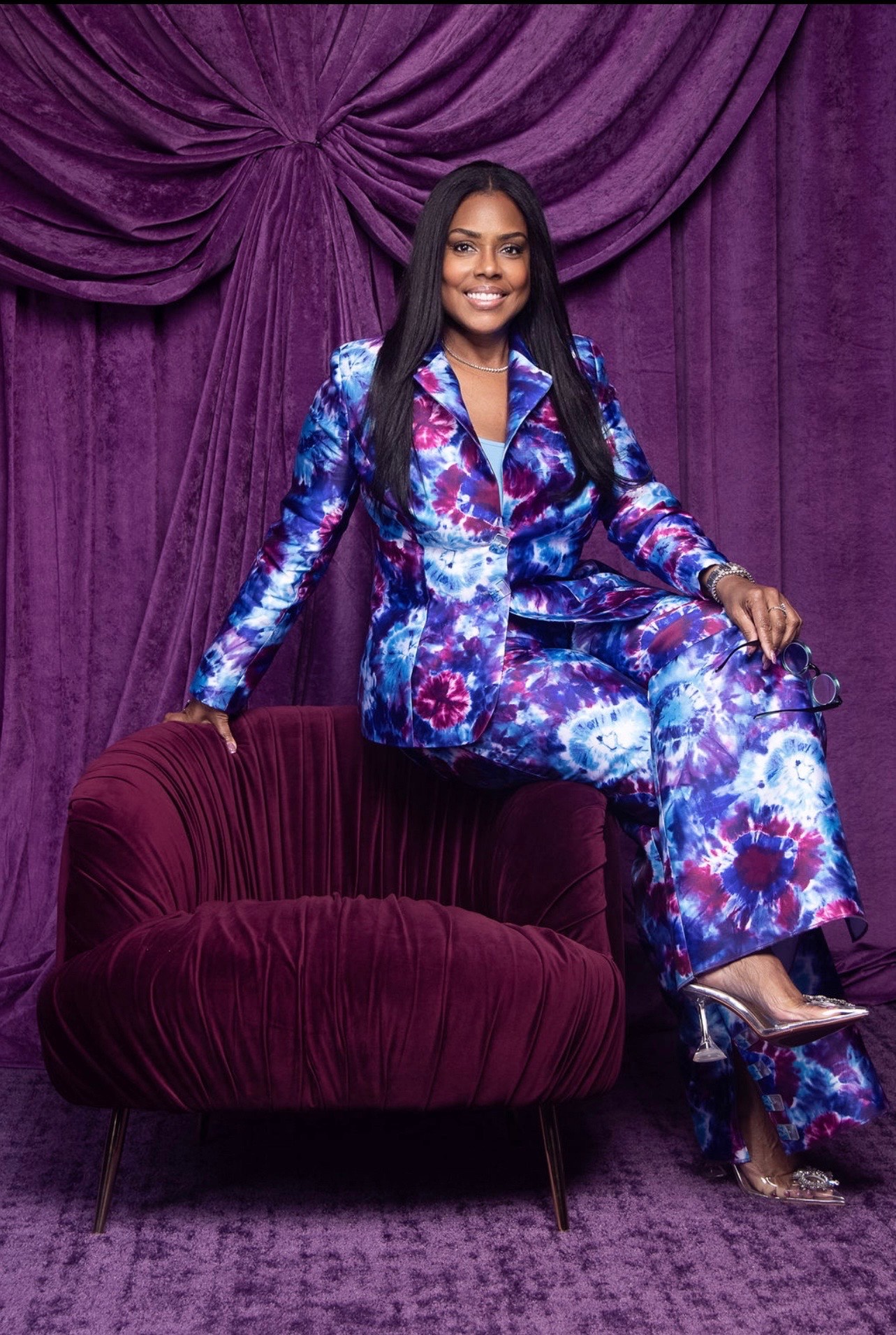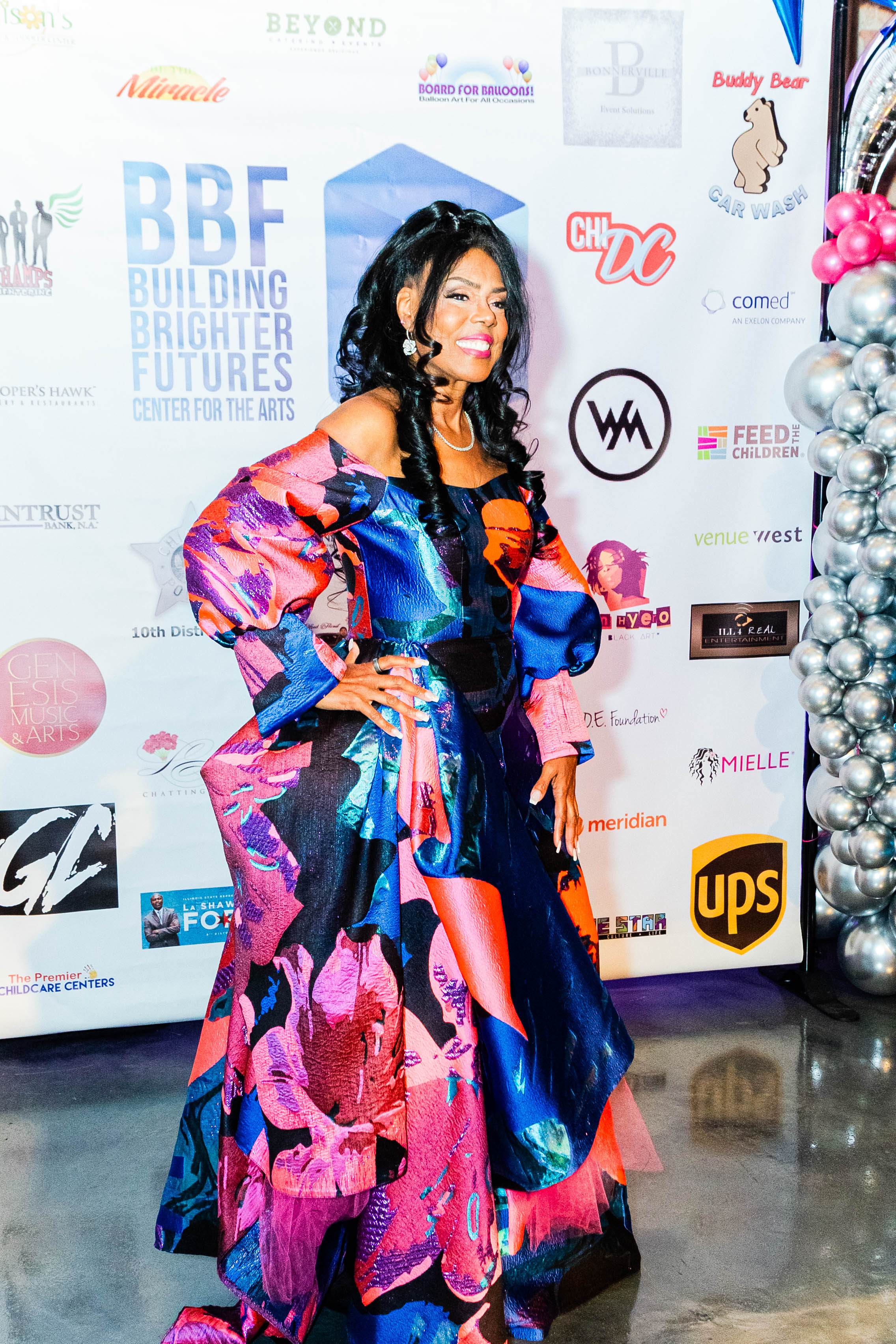
“I was never supposed to be here,” Dr. Pamela Joy Blackman says. It’s not branding or performance—it’s survival talking. It’s testimony.Before anyone knew her name—before Blackman led one of Chicago’s longest-standing community institutions, before the galas and governors and philanthropy embraced her—she was a little Black girl in North Lawndale, trying to understand why love felt like something she had to earn.
“If you met my six-year-old self,” she says, “you would’ve met a wounded child—searching, seeking, wanting, desiring love, attention, affection.”
Her father left before she was born. Her mother, lost in her own heartbreak, shut down emotionally. “When she told him she was pregnant with me, he left her. So it was as if she blamed me in the heartbreak,” she says. There’s no anger now—just release.
She grew up in a house where resilience wasn’t a slogan—it was necessity. Expectations were high. Mistakes weren’t easily forgiven. Silence said as much as words. But adversity didn’t drown her; it refined her.
“I graduated in three years, never smoked, never got high, didn’t have children out of wedlock—six degrees—overachiever. I did everything right, hoping to win my mother’s affection,” she says. Not proud—just honest.
Achievement didn’t heal. It only moved the goalpost. Healing came when she stopped chasing perfection and started seeking faith.
“I went to church my whole life, but one day I realized I was playing church. I didn’t have a relationship with God,” she says. “When I truly sought Him—that’s when I stopped needing what I never received. That’s when I started to blossom.”
That was the break in the cycle.
“You can’t wait for someone to rescue you,” she adds. “You have to be the miracle you’re praying for.”
It’s the kind of sentence that sits in silence after she says it—half sermon, half survival manual.

The Rise
Blackman attended Lindblom Math and Science Academy, one of Chicago’s most competitive public schools. Not because she had connections, but because she competed for and earned her place.
Then came the degrees—six in all—including a Master of Social Work and a Master of Psychology, followed by an honorary doctorate recognizing her humanitarian leadership. Each diploma was more than paper—it was armor.
She didn’t just study; she built. She opened daycare centers, mentored women, and hired people who needed a chance. “People would walk in and tell me the most personal things. I listened. I cared. And I found myself giving direction—naturally.”
Her purpose showed up long before her title did.
The Assignment: Building Brighter Futures
Today, Blackman leads Building Brighter Futures Center for the Arts, the modern evolution of the Better Boys Foundation, founded in 1961 as a boxing program to keep young men off the streets of North Lawndale. What started as a small safe space has grown into a full cultural institution—an education hub, performing-arts academy, and workforce pipeline in one.
“Every time I tried to leave, God sent me right back to North Lawndale,” she says. “The streets, the schools, the same kids—He kept showing me my assignment.”
But purpose doesn’t mean ease.
“Philanthropy isn’t magic—it’s not fairy dust and good vibes,” she says. “People don’t understand—we have to spend money before grants reimburse. If we don’t have the money up front, programs stop. That’s not an option.”
Inside Building Brighter Futures, programs don’t just keep kids busy—they change lives. From workforce development and performing arts to mentorship, counseling, and scholarships, everything is designed to build confidence and open doors. There’s food when a child is hungry, a coat when they’re cold, therapy when its required, love and protection they need safety.
The center now serves more than 700 youth each year, offering over 20 arts and leadership programs for ages 8–24. More than 80 percent of program graduates pursue college, trade certification, or full-time employment within a year—evidence that the work is not charity but transformation.
“They don’t care how polished you are—they care if you show up,” Blackman says. “And we show up.”
“Some of these kids have seen more trauma than me, you, and ten other adults combined,” she adds. “We don’t turn anybody away. If you walk through our doors, we got you.”
She doesn’t say it as charity. She says it as covenant.
Not Just Survival — Expansion
Growth hasn’t been easy. Funding is scarce. Competition among nonprofits is constant. Yet Blackman insists on collaboration over competition.
“There is power in partnership,” she says. “Chicago has too many silos—too many people trying to do it alone. That’s not us. We build together.”
Under her leadership, BBF has partnered with schools, businesses, and corporate sponsors to expand without losing its mission. This is Chicago legacy work—built brick by brick, relationship by relationship.
When actor Jussie Smollett settled his legal case with the City of Chicago in 2025, he directed a $50,000 donation to Building Brighter Futures. Headlines debated the politics, but in North Lawndale it meant something simpler: someone believed enough to invest.
Blackman has returned to lead BBF three times. Each time, the call was stronger. “This isn’t a job,” she says. “This is a calling. And a calling doesn’t let go until the work is done.”
Galaween — Purpose Meets Power
Every October, Blackman leads Galaween, the organization’s signature fundraiser—a masquerade celebration with a mission. The 4th Annual Galaween Masquerade Ball, held Saturday, October 25, 2025, at Venue West, will blend elegance and empowerment for an evening that fuels the work ahead.
Venue West fills with music, masks, and color. Under chandeliers, guests dance, donate, and witness the next generation perform. It’s a space where glamour meets grit, where hope dresses up but never forgets where it came from.
The night honors those who serve the city:
Derrick Rose – NBA icon and symbol of resilience
Aleta “Englewood Barbie” Clark – founder of Hugs No Slugs
Qadir “Goalden Chyld” Hakim – founder of Unity Movement
Derek Brown – Boxing Out Negativity
Ta’Rhonda Jones – actress and recording artist
Pha’tal Perkins – CEO of Think Outside Da Block
“Galaween is partying with a purpose,” she says. “We honor people who fight for the underdog—because that’s who we are.”
But make no mistake: Galaween isn’t glitter—it’s oxygen. Fundraising is survival. Grants don’t cover the heart of the work; community does.
The Woman Behind the Work
Blackman’s leadership is anchored not in ego but in empathy. She doesn’t just run programs—she runs toward people. Her background in psychology and social work weren’t just academic pursuits; they were survival tools—first for herself, then for the thousands she now serves.
“A title doesn’t make you a leader; service does,” she says.
She believes in accountability wrapped in love, in hard truth spoken gently, in showing up not for applause but for impact.
The little girl once starved for love now pours it into others. The woman once searching for belonging now creates a space where they belong find extended family for thousands. Her story doesn’t erase the past—it redeems it.

The Legacy in Motion
Blackman believes every child deserves the right to dream and the resources to build. She sees the West Side not as a problem to fix, but as a promise to protect. BBF isn’t just a building—it’s a response.
It refuses to let statistics speak louder than potential. It refuses to let trauma define destiny. It refuses to let young people believe greatness skips their block.
Every teen who gets a mentor. Every child who dances their way out of fear. Every student who finds their voice in theater. Every young man who sets down anger because someone finally listened. Every young woman who sees herself in her own future for the first time.
This is what purpose builds.
This is how a girl from North Lawndale became a woman who didn’t just survive her story—she rewrote it.
“What we’re building here isn’t charity,” she says. “It’s restoration.”
“We are doing the work,” she adds. “Come see us. You don’t need an appointment. Just walk in—and you’ll feel it.”
The masks at Galaween are for celebration. The mission behind them is not disguised.
Purpose didn’t just choose her. She chose it back.